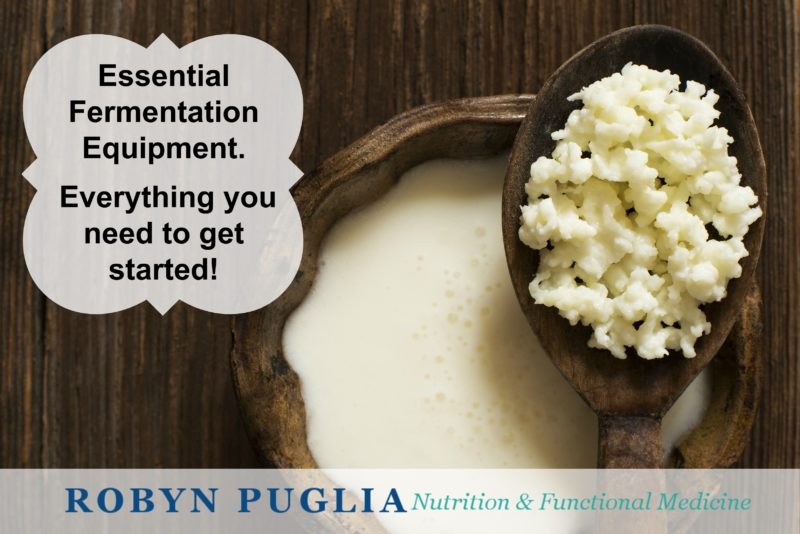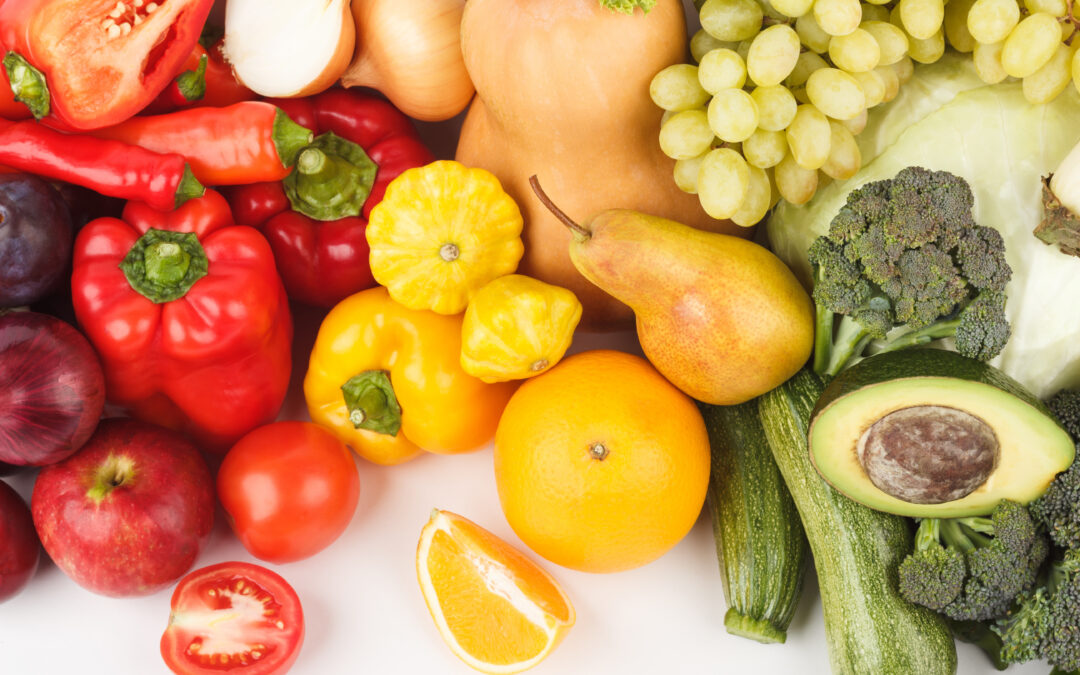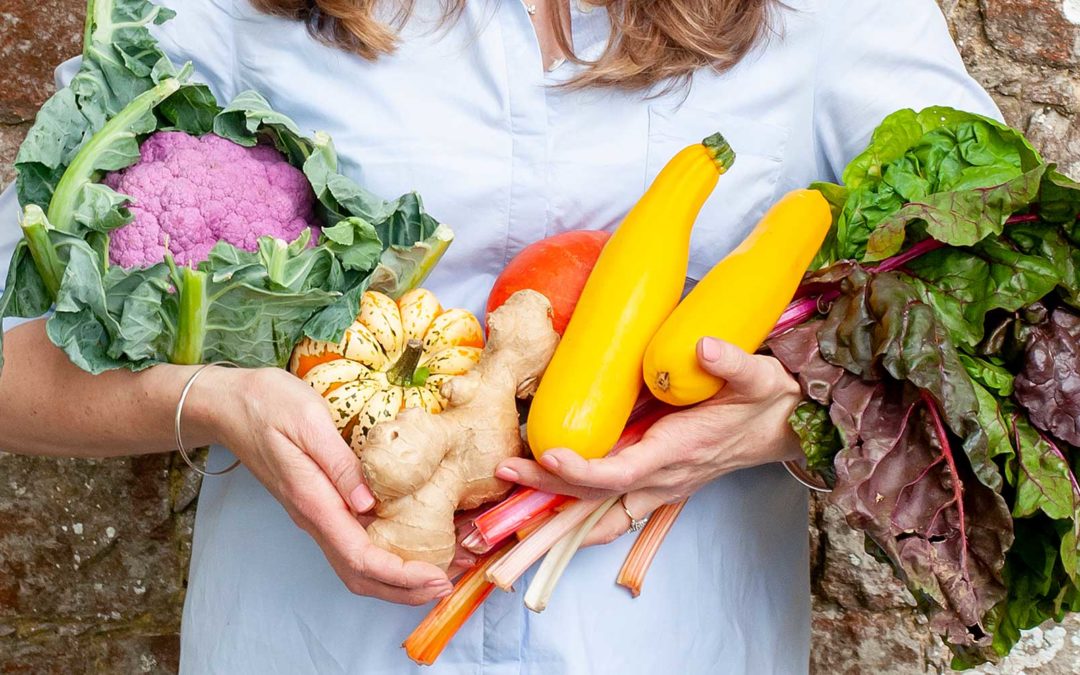Happy Friday! It’s time for another Fun Find Friday, where I share with you fun or useful things that I’ve bought or found this past week, or just some of my favourites.
I feel like I’ve written a bit about fermentation recently. I have a couple of great recipes for fermented veggies on the site already (My recipe for Beet Kvass brings literally thousands of people from Pinterest every month, have you tried it yet?), and I have even more coming up, to my great joy.
So with all the great fermenting that I expect is going on in your kitchen as a result of all my enthusiasm and recipes, I thought it would be useful to share with you what pieces of equipment you might like to consider, to make this project a successful breeze and not a mouldy chore.
Here are my essential basic pieces, to set you up for success.
Jars with Airlock Lids.
This is my number one piece of equipment for sure. These have definitely made a huge difference to my successes with making kraut, or with any veg that tends to float to the surface of brine.
They make successful fermentation as easy as throwing veg and brine in a jar and putting the lid on.
The airlock allow for gas exchange as the veg ferments and creates an anaerobic environment in the jar, which protects against mould and other unwanted things growing on the surface of the ferment.
There are a couple of different types of airlock you can use. One with a water ‘moat’ and the Kilner sterilock, which don’t have water. I have both, and I use my ones without the moat waaaaay more often because they are easier, BUT I actually think the water moat ones work better. I tend to discard the top layer of kraut when I use the kilner jars because it’s a different colour to the veg below even though they are probably just fine. But both definitely make a great ferment and also I never have mould with either.
My friend Ipashri ferments legume dough in hers to make easily digested and nutrient dense Indian flatbreads. My point being, they’re extremely diverse in their use.
250ml / 1 Cup sized jars for making Kefir
I went a little bit crazy and bought 24 of these jars one day. My husband think I have a crazy glass jar obsession, and he might be right. But I have never regretted this purchase. I use these jars for so many things!! But one of the best has been for fermenting a perfect cup of kefir. I use goat’s milk or coconut milk to make kefir, and I love that there’s no guesswork for how much milk or how many grains to use when I use these jars. 1 cup of milk needs 1 tsp of grains.
Plastic strainer.
Again, for the Kefir. I have a big aversion to plastic (which precursors my big love of glass jars, haha) so I didn’t have a plastic strainer. You will need one if you’re going to be fermenting regularly as you can’t use metal equipment with kefir grains or kombucha scoby.
Huge jar for batches of Kombucha
I really love kombucha. I don’t keep a continuous brew going and I don’t drink it every day, but when I make it I make big batches and for a while at a time. I like to use a 4 Litre jar, because then when it’s finished fermenting, I’ve drunk my way through the last batch and I’m ready for the next.
Recipe books on the subject.
Wild Fermentation, Sandor Katz
Fermented, a Four Seasons Approach to Paleo Fermentation. Jill Cicarelli
There are lots of handy websites with videos and tips, but I definitely recommend these two books. They have the most recipes and the best fail-safe tips. I’ve never made anything that hasn’t turned out, when I’ve followed one of these recipes. Sandor Katz is considered the godfather of fermentation. He has quite the fan following in the fermentation world. His book is pretty much considered the fermentation bible and it’s definitely the place to start.
Fermented however, doesn’t contain all the bread and beer recipes as it’s grain free. So it much better reflects how I actually eat and I therefore do use it a lot more.
Note, I just noticed when making the link, that Fermented is super expensive on amazon UK. Meaning it’s probably not really being sold over here. I notice a couple of newer books on the subject that look very fun, but I haven’t tried them yet so can’t comment. Perhaps you’ll see an update next Friday!!
Website where I buy most of my fermentation things.
I was so happy when I found Happy Kombucha. Finally a place in the UK where I could get grains, scoby and so much more besides. They even have convenient starter kits, for the newbies to fermentation among you. I even feel happy just logging on to their site, like a kid in a candy store, health-nerd version.
Alright, now you have all the basics, you can certainly get started!!
Do tag me if you post pics of your adventures in the kitchen. #robynpuglia
Keep your eyes peeled for some really fun and interesting fermentation recipes that I have coming up in the next weeks.
And don’t forget to check out my beet kvass recipe. See what all the fuss is about 🙂
I have linked to all the bits and pieces that I actually use, in this post. It’s for interest and reference only, no affiliate links. I also started fermenting fairly seriously 5 or 6 years ago, and so some of my beloved things may have been replaced with new, shiny ones in the market since then.






